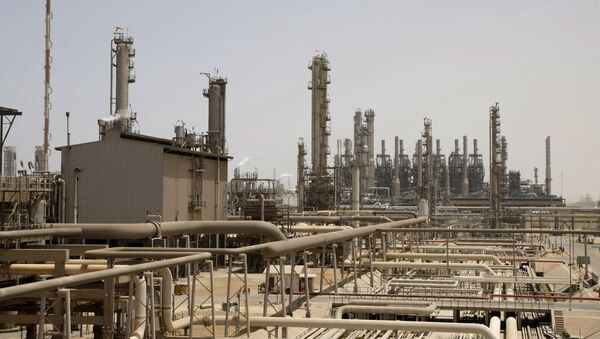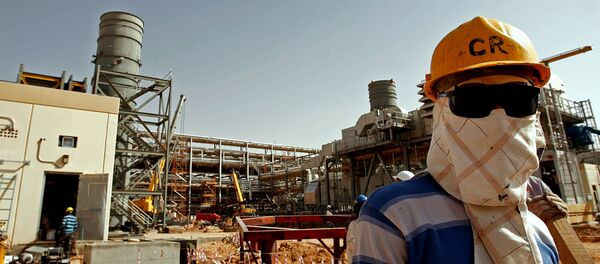Saudi Arabia's effort to privatize its national oil company is a careful balance between finding more capital for the troubled sector and keeping it as a windfall for the royal family.
Both the oil minister and the company chief believe that privatizing the company would yield greater transparency. However, the proposed privatization scheme detailed by the company chief on Monday allows for the creation of two separate companies, one for extraction (upstream) and another for refining (downstream) with the logistics connecting them held by the state.
"So a listing of the main company, and obviously the main company will include upstream. We’re considering a listing one level below, which would include many of our downstream assets, including refining and petrochemicals," Saudi Aramco Chairman Khalid al-Falih told the Wall Street Journal.
"The issue of payments from the [Saudi King's executive office] to members of the royal family is sensitive. Perhaps one of the reasons why the privatization of Saudi Aramco has been delayed so long is that transparency could lead to questions about who is entitled to receive a payment," Seznec wrote.
Midstream Madness
Saudi Aramco owns most of its distribution, including the Dubai-headquartered Vela International Marine company, which operates 24 supertankers and five smaller tankers. The company's website also states that Aramco has a 20,000 kilometer pipeline system inside Saudi Arabia, which has also not been mentioned in the so far tentative remarks about privatization.
The Aramco chief also noted that the company would only be listed on the Saudi Arabian stock exchange, recently made accessible to foreigners. This would allow it to escape oversight that companies listed on major exchanges face, and also pave the road for potential insider trading by royal family members.
"At the end of the day, we will have to decide based on legal issues and jurisdictional complications given where the operation is and where the listing is," al-Falih told WSJ.
Financial Issues
Aramco's partial privatization may be driven in part by Saudi Arabia's financial issues, according to Brown University Professor Jeff Colgan, author of "Petro-Aggression: When Oil Causes War."
"Saudi officials are of course justifying the sale for reasons of management efficiency, transparency <…> but I think that’s mostly rhetorical cover for the fact that they are selling a piece of their best asset during tough economic times," Colgan told Sputnik.
The Deputy Crown Prince's economic restructuring plans would require as much as $4 trillion of investments in the non-oil sector alone, according to a report by consulting company McKinsey, which works with the Saudi government.
In that sense, a privatization which allows royal family members to pillage the company through state-controlled logistics intermediaries, while also generating funds for the state, appears to be more of a stopgap measure than a transformative one for the Saudi economy.





